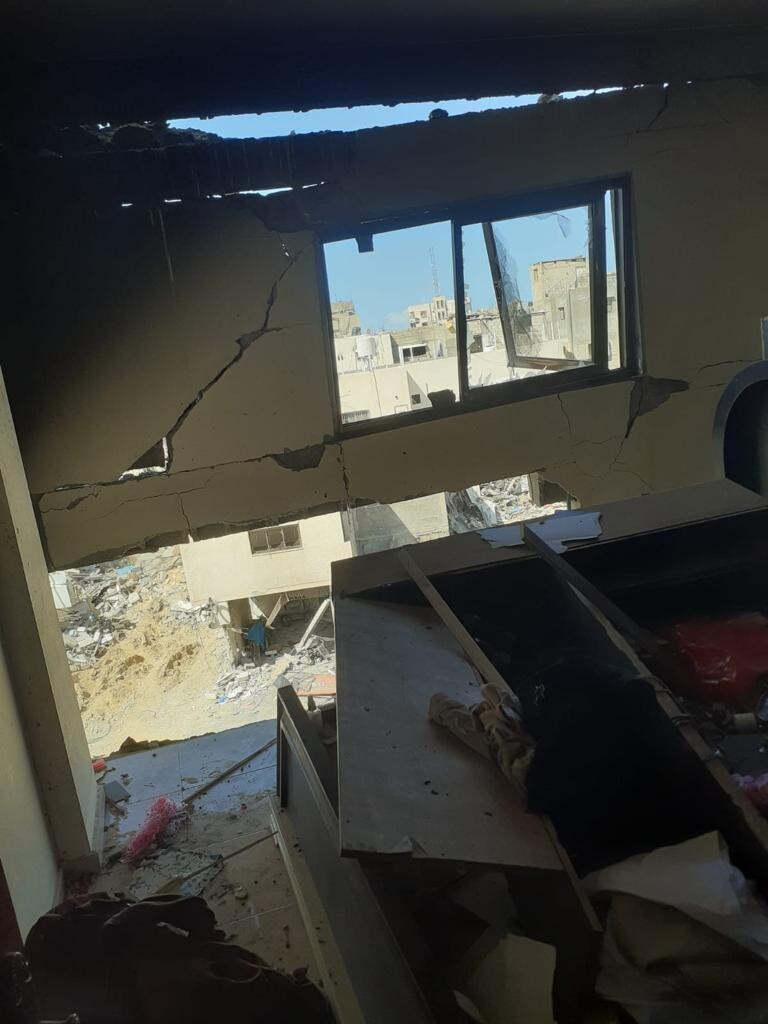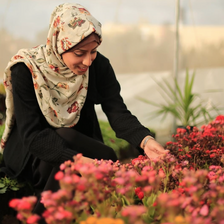The Electronic Intifada 29 March 2024

Israel has subjected Khan Younis to extreme violence.
APA imagesSahar Amer – my sister – was just 5 when our family’s home was destroyed by Israel’s bulldozers.
Our home was located in Khan Younis refugee camp, southern Gaza. Its demolition took place in 2000.
Sahar’s early childhood memories include hearing gunshot and smelling tear gas.
Our family had no proper shelter for two years after the demolition of our home. Then we moved to al-Fukhari, east of Khan Younis.
Despite how Sahar was so young when the demolition occurred, the camp has always been close to her heart.
During previous Israeli attacks on Gaza, we have been displaced from al-Fukhari and gone to stay with relatives in the camp. It was considered safer than other areas.
Sahar returned to the camp when she got married and lived in it for the past five years. She has two children – Rital, 4, and Adam, 2.
After Israel began its current genocidal war against Gaza, Sahar encouraged relatives to take shelter in her home. Dozens accepted her offer.
Sahar tried to remain strong “for the sake of my children,” she said.
She would cook for them by making fires. Ensuring they had enough to eat and drink became increasingly difficult as food and clean water were scarce.
Things worsened considerably in December, when Israel undertook a ground invasion of Khan Younis.
Our mother called Sahar constantly, asking that she leave her home.
“She was worried about my children,” Sahar said. “But I told her that we were fine and far from danger.”
Forced to leave
Unfortunately, the danger got closer when Israel stormed Nasser Medical Complex in Khan Younis.
“I began to hear the sounds of shells as if they were in my house,” Sahar said. “Some bullets were hitting the building. I began to feel this great anxiety about what might happen to my children.”
In late January, many fled the camp. “I was looking out the window and seeing people carrying their belongings,” Sahar said.
Sahar prayed that she could remain.
“But I was forced to leave,” she said. The Israeli military ordered the camp’s evacuation.
She came to where our family now lives.
Over the coming days, her daughter Rital kept asking questions.
“When will we go home?”
“Where are my toys?”
Rital said that she missed her cousins in the camp.
Sahar tried to reassure Rital that everything was fine. They would return to the camp soon.

Sahar Amer’s home after it was attacked.
Then Sahar got terrible news.
Their home in the camp had been severely damaged. It was no longer fit to live in.
During February, Israel withdrew its tanks from the camp. Some of Sahar’s neighbors were able to go back there.
They confirmed that her home was severely damaged.
Sahar’s husband went to fetch some of the children’s toys and clothes.
“He took some pictures and videos of the house,” Sahar said. “I was shocked when I saw them.”
Sahar decided to inspect the damage for herself.
There was so much rubble in the camp when she entered that she had trouble walking through it. The streets were unrecognizable.
Many of her neighbors’ homes were razed.
In Sahar’s own home, the kitchen and her children’s room were destroyed. The children had no bed or closet left.
Losing their home has had a marked effect on the children.
“My children started telling everyone that our house was bombed and now we do not have a home,” Sahar said.
They are only a few years old. They are going through the kind of horrors no child should ever have to experience.
Ruwaida Amer is a journalist based in Gaza.





